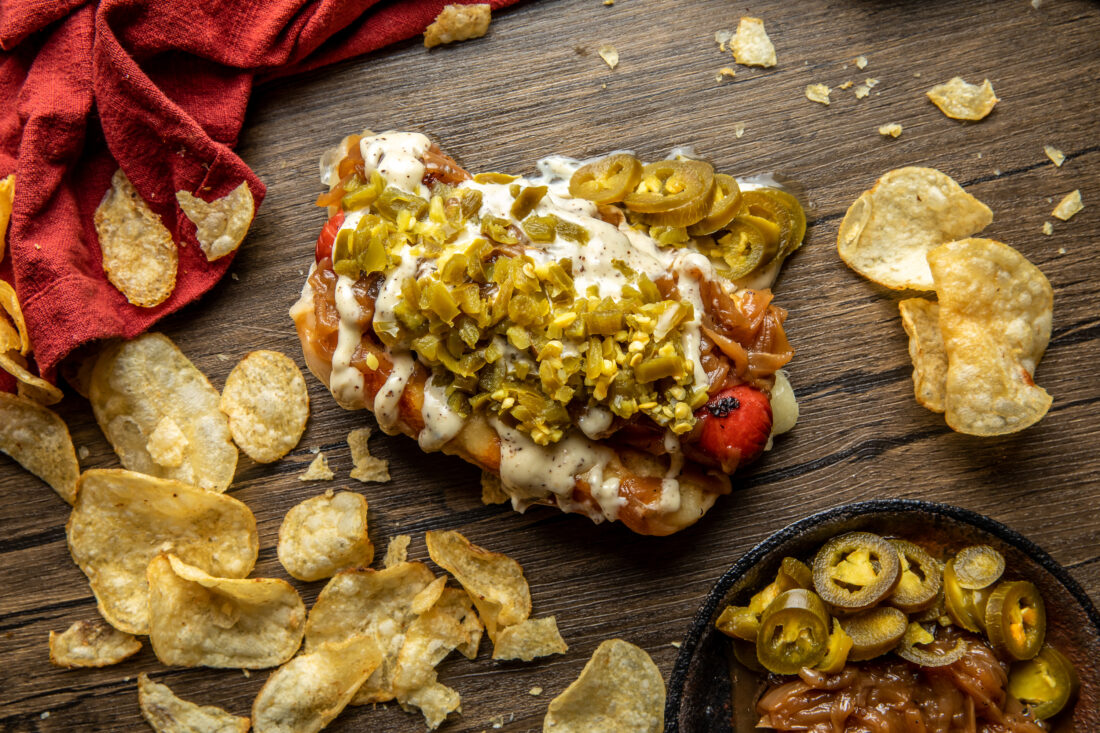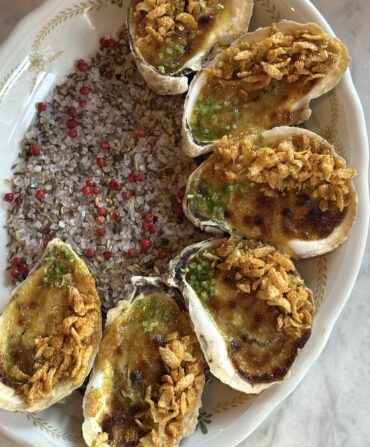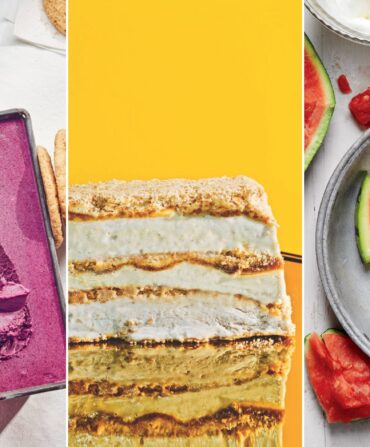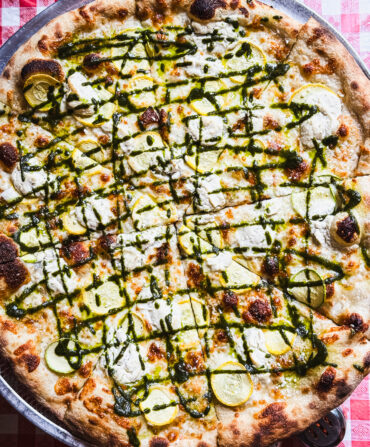When Michelin visited Atlanta in 2023, it solidified the city’s reputation as a dining destination. As locals know, and as the guide’s reviewers learned, there’s plenty here to like: the playful fare at well-regarded Little Bear; the Thai preparations and Georgia ingredients at Talat Market, which graced a 2020 cover of Bon Appetit; the Filipino feasts served at Kamayan ATL by James Beard–nominated chefs Mia Orino and Carlo Gan.
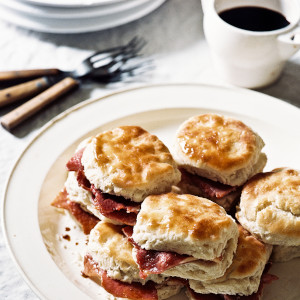
One element uniting that eclectic group of restaurants—beyond the piles of accolades—is that all began as pop-ups: chefs doing one-off dinners in rented spaces or borrowed kitchens. In recent years, pop-ups have emerged as a central force in Atlanta’s dining scene, engines of creativity that are increasingly driving the culinary conversation. Already underway, the trend was accelerated by pandemic instability and rising costs. It’s much cheaper to pop up than hold down a permanent space in Atlanta’s booming real estate market.
For chefs, the model can be freeing, and more welcoming to folks who might otherwise struggle to get a foothold in the industry. Since the barrier to entry is lower, they can worry less about pleasing all diners and focus on following their passions—which can run from the familial (see the vibrant Lao fare at Molli Voraotsady’s So So Fed) to the collaborative and fun-loving (Stolen Goods, a collective of chefs of color, specializes in the “intersections of food, nostalgia, and pop culture”) to the truly outré (at Jackalope, Dave Mouche dreams up dishes like smoked mapo chili wonton pie). What this all adds up to is some of the most exciting food to be found in the city right now.
The finding, though, can be a challenge with restaurants that have neither set hours nor permanent homes. Here are a few tips for navigating Atlanta’s pop-up scene.
Follow the leaders

Sam Flemming is Atlanta’s pop-up impresario. An Alabama native who previously lived in China, Flemming moved here a few years ago and found himself seeking out the cuisines he’d enjoyed while traveling around Asia. The best sources, he found, were outside the four walls of the city’s brick-and-mortar restaurants—and in its underground dining community.
The challenge was keeping track of it all—but Flemming, of all people, was prepared. In China, his work had been in monitoring social media for brands, “where basically you have lots of chatter online and structure it into meaningful intelligence,” he says. “With Punk Foodie, it’s no different.” Punk Foodie is the name of the Instagram account Flemming launched in 2021, which he’s since grown into a much larger operation. Since Insta is a vital channel of communication for pop-up proprietors, Flemming began tracking accounts and organizing the details into guides and recommendations, compiling a database that now includes 1,200 chefs and venues. Anytime, you can check Instagram for information on upcoming events, or consult the Punk Foodie app, where you can search dates, keywords, and recommendations.
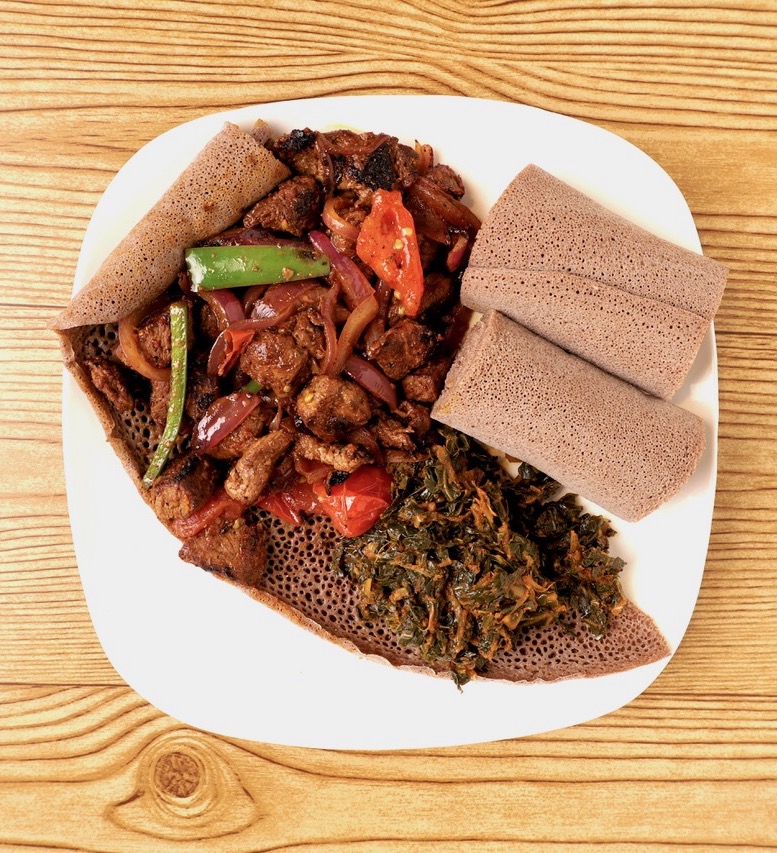
“When I was growing up, I wanted to be in a rock band, but I was not very talented. So I was like, I’ll be a journalist. I’ll write for Rolling Stone,” Flemming says. Punk Foodie “is that for food.” Some recent stars in Flemming’s orbit: Pepper’s (hot dogs and other comfort food), Ruki’s Kitchen (Ethiopian), Mighty Hans (Taiwanese American), and Dhaba BBQ (Indian fusion: think lemon-pepper masala wings).
Hit the bars
Bars and breweries, in particular, often open their kitchens to chefs looking for a host. Check out Sceptre Brewing Arts, where Ganji ATL serves drink-friendly Korean fusion like pork belly bossam tacos; Boggs Social & Supply, which has hearty weekend brunch from Ria’s Babybird, plus dinner during the week; and Bookhouse Pub, where you might encounter Tony’s ATL—a culinary love letter to Italian beef sandwiches and other Chicago specialities.
Look for the sweet side
One particular area of excellence for Atlanta’s pop-ups: Filipino pastries. Baker’s Hatt offers vividly colored products like ube whoopie pies; Seven Fingers Baked Goods has pandan blondies and calamansi crumb muffins; and Three Lolas Bake Shop serves art that also happens to be spectacularly delicious—such as sans rival layer cakes. For other floury masterpieces, see Osono Bread’s brilliantly conceived doughnuts (e.g., cardamom creme and poached rhubarb, but don’t sleep on the artisan breads); At Heart Panadería’s exuberantly decorated cakes and Mexican pan dulce; and classic, Southern-ish desserts and biscuit sandwiches by Sugar Loaf.
You’ll want something to sip with all that. Track down Recuerdos Cafe, whose classic Mexican café de olla is flavored with orange, piloncillo, anise, and cinnamon, and TanBrown Coffee, an artisan roaster specializing in Asian beans.
Embrace the community
Atlanta’s pop-up ecosystem is remarkably communal, characterized by mutual support, lots of collaboration, and a love for cultural exchange. One longtime innovator in this scene, Yohana Solomon, started organizing food vendors at the Atlanta Underground Market in 2011. Deeply involved in Atlanta’s immigrant and refugee communities, she knew there was a well of culinary talent out there waiting to be tapped. “As an immigrant myself, what we’re good at is feeding people,” says Solomon, who’s from Ethiopia. “We tell our stories through food.”
Later, Solomon and business partner Amanda Plumb launched Chow Club, a ticketed monthly dinner highlighting cooks from around the world. Building on Chow Club’s popularity, Solomon has recently taken an empty restaurant and turned it into a kind of mini food hall, Chow a la Carte, open Thursday through Sundays. Here, you may come across ceviche and pernil from the Latin American pop-up Humo, West African and Caribbean dishes from chef Wellington Onyenwe, and much more.
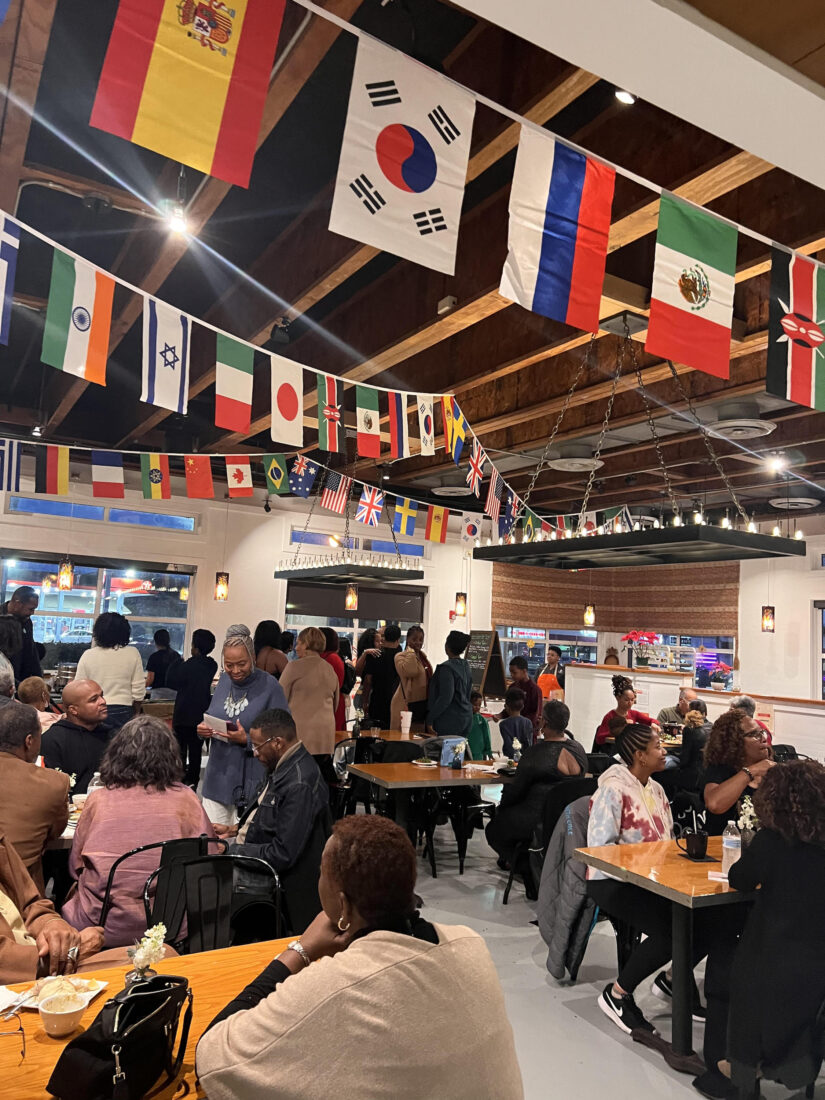
Meanwhile, Chow Club’s monthly dinners are ongoing, and meaningful beyond just filling bellies. Solomon recounts something that happened in 2017, following the Trump administration’s ban on travelers from Muslim-majority countries. “I met this beautiful mother and son—refugees from Syria. They thought everybody hated them here,” Solomon recalls. She arranged for them to cook a Chow Club dinner but, as tickets went on sale, the payment app stopped processing them; Solomon suspects it was because the event had “Syria” in the name.
Luckily, the dinner went ahead. “People were so grateful,” Solomon says. “I was like, this is what we need to see. Not our difference, but—we’re all connected somehow, right? Even when it’s hard sometimes, there is a bigger picture to why we’re doing what we’re doing.”


